Hara Hachi Bu - Eat Until 80% Full
Hara hachi bu! No, I'm not cursing at you in Japanese.
Rather, I'm giving you a secret to weight loss and long life. How would you like to not only lose weight but live to 100 with few age-related health problems?
Okinawa, Japan has a higher percentage of centenarians (people over age 100) than anywhere else. Of those who eat the traditional Okinawan diet, few are obese.
One of the Okinawans' secrets to staying lean and healthy is called Hara hachi bu, which means "Eat until you are only 80% full". Another way to express it is, "Eat until you are eight parts out of ten full, then stop eating". Hara hachi bu is the Okinawan form of calorie control, and they have followed this principle for generations.
Of course, there is more to the Okinawan diet than just stopping before you are full. Okinawans feast on healthy foods such as fresh vegetables and fish, and they avoid processed foods.
Limiting calories and eating a lot of vegetables not only helps Okinawans keep their weight down, it also leads to a lower incidence of age-related diseases.
Fewer free radicals are produced on this type of diet, and the vegetables provide anti-oxidants to fight the ones that are. Free radicals attack the cells in your body and contribute to the appearance of age-related diseases over time.
In addition to their healthy diet, Okinawans also get plenty of physical exercise each day, through gardening, walking, and other activities.
While you may not be quite ready to adopt the full Okinawan lifestyle, you can still take a page from their book. At each meal, push the plate away before you feel full. (You can even shout Hara hachi bu! if you want to.)
To be able to do this, you first must learn how to assess your ongoing level of hunger. You must become highly aware of the signals your body is sending during mealtime.
An effective way to increase your awareness is to practice mindful eating. Through mindfulness, you gain conscious control that helps you avoid eating compulsively. Only by eating slowing and becoming more aware of how full you are will you be able to know when you are 80 percent full.
Why Does Hara Hachi Bu Lead to Weight Loss?
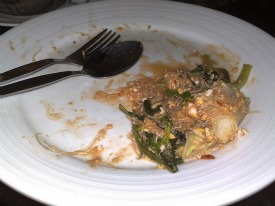 My 20% left; imagecredit: flickr/Siwat |
The reason that eating this way results in weight loss is perfectly logical. As it turns out, your brain takes 20 minutes to recognize that your stomach is full. As a result, if you keep eating until you "feel" full (i.e, you brain thinks that you are full), then you have, according to scientists, over eaten by about 20%! |
When you follow Hara hachi bu, you stop when you perceive that you are 80% full. However, because your brain is a little slow recognizing fullness, when you are 80% full you are actually 100% full. In other words, at that point you have eaten exactly the right amount of food to prevent your stomach from stretching beyond its normal size.
You may have noticed that you have continued to gain weight over the years even though you have always stopped eating when you were full. Now you know that you have been regularly eating 120% of what your stomach can comfortably hold.
Eating beyond the point of true fullness causes the stomach to stretch. The next time you sit down to eat, therefore, your stomach is literally bigger and will require more food than the previous meal to achieve the feeling of fullness. Eat that way for years, and guess what? You end up packing on the pounds without ever understanding why.
When you first start following Hara hachi bu, you might feel a bit uncomfortable getting up from the table before you feel full. What you may notice, though, is that about 20 minutes after the meal is over you suddenly do feel full.
Your brain just needs that window of time to catch up with your body's actual state.
You might also feel a bit guilty about leaving food on your plate. But remember, your health and self esteem are a lot more important than a few scraps of food. If necessary, break out the tupperware and save the remaining food items for left-overs.
To start losing weight with your very next meal, just Hara hachi bu!
Like This Page?
If you found the page above interesting, fun, or useful, please click the "Like" and/or "Share" button below. Feel free to leave a comment as well. Thanks very much!
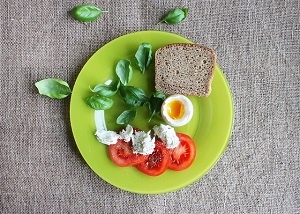
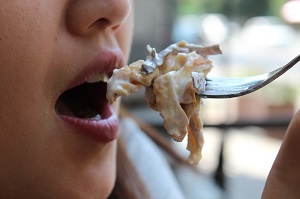
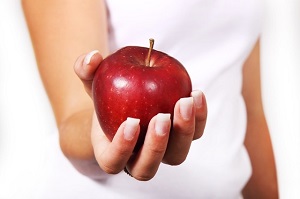
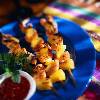


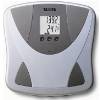


New! Comments
Have your say about what you just read. Leave me a comment in the box below.